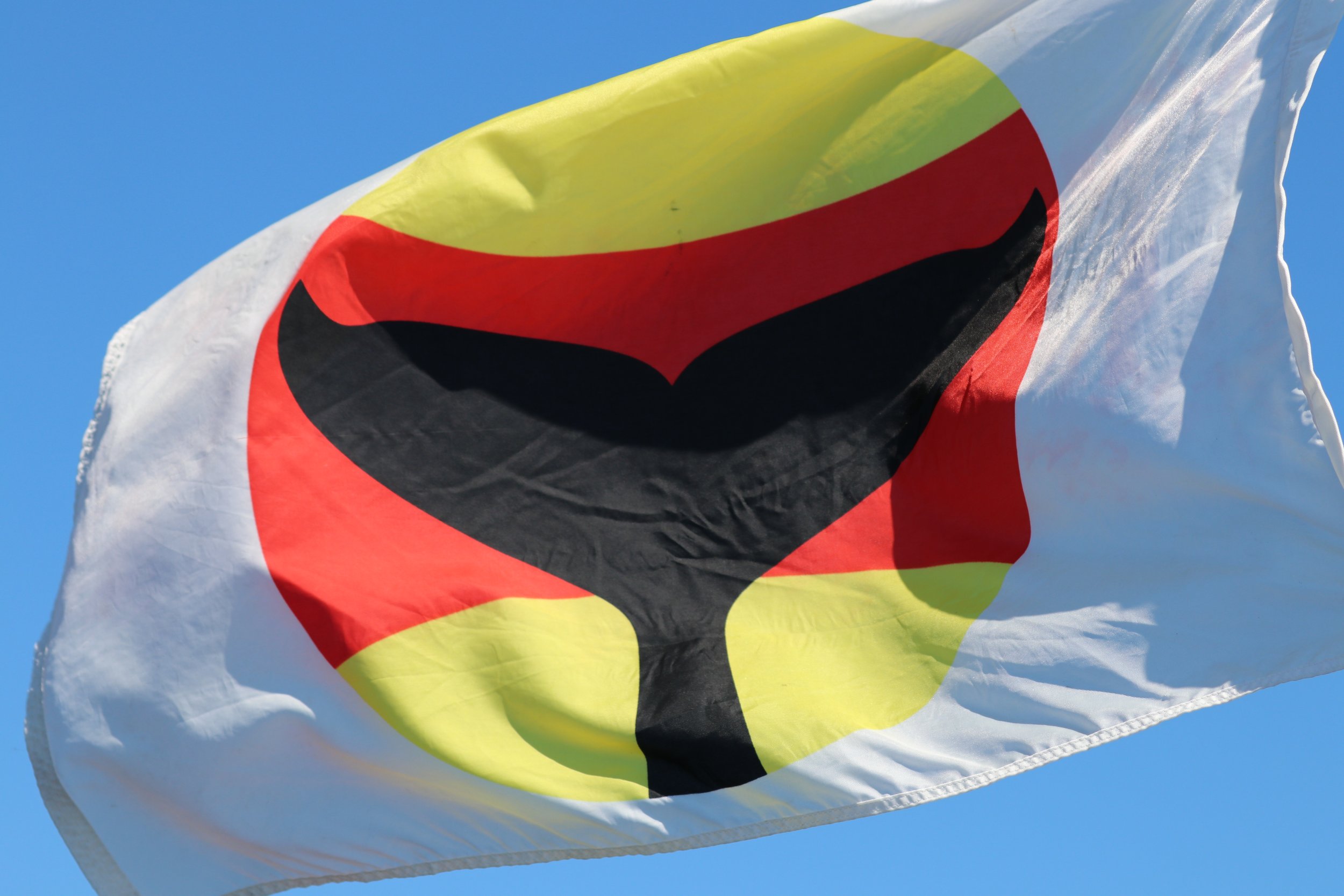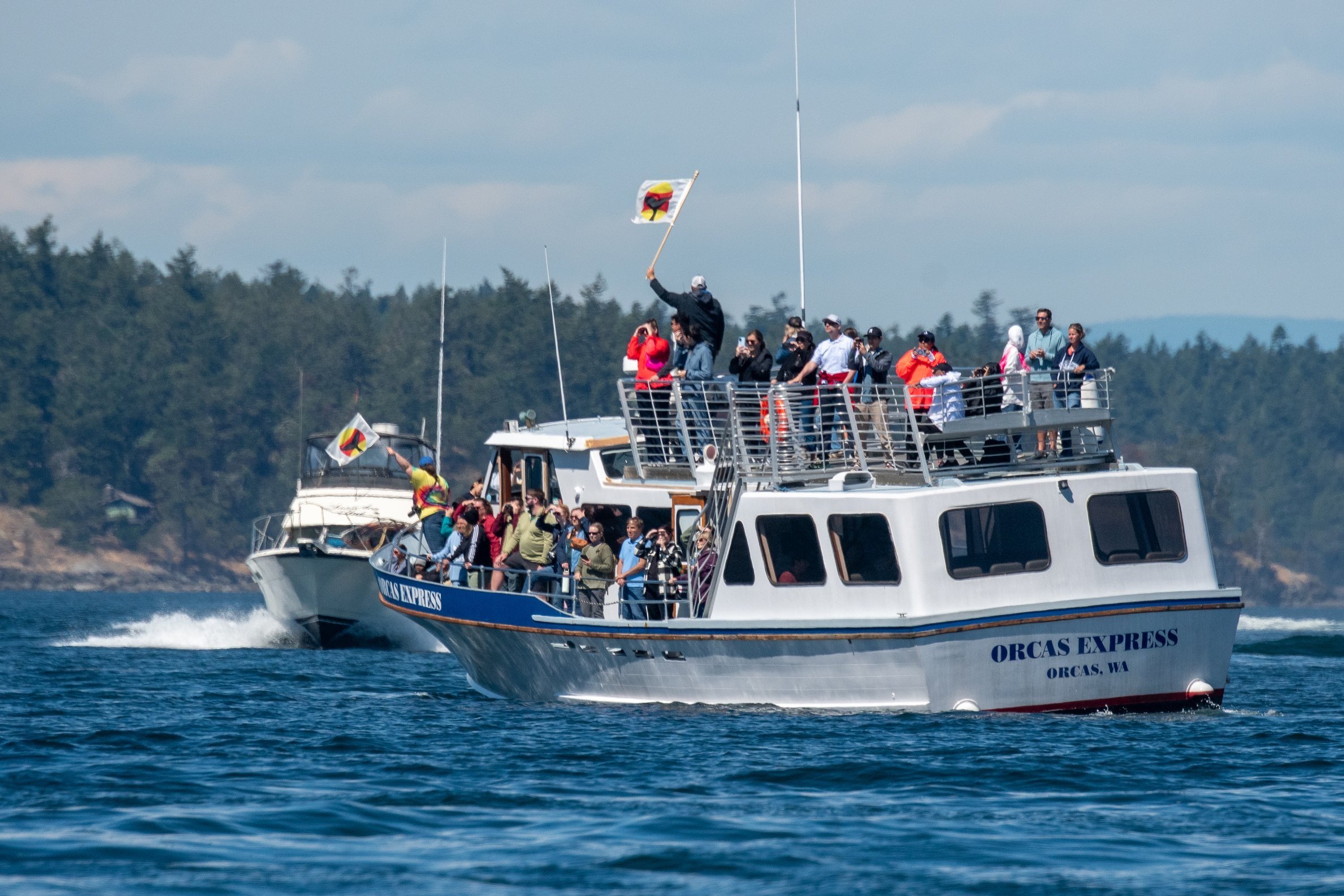
Salish Sea Sentinels
The Salish Sea is a huge expanse of water covering nearly 7,000 square miles. While law enforcement is on the water to enforce boating regulations as much as they can be, with finite resources, it’s impossible to be everywhere at once. Often professional whale watchers are the only line of defense when it comes to protecting local whales.
Sentinel Actions
Each year, PWWA operators document hundreds of sentinel actions. A sentinel action is any intervention performed by a PWWA crewmember during a tour to help protect marine wildlife.
Examples of sentinel actions include:
Whale Warning Flag
The Whale Warning Flag was developed as a way to alert boaters of whales in the vicinity. First utilized by our colleagues with the North Island Marine Mammal Stewardship Association (NIMMSA) near north Vancouver Island, the flag was introduced to the lower Salish Sea in 2018 and is steadily gaining recognition.
Based on a “diver down” flag, the Whale Warning Flag indicates to nearby vessels that whales are within 1 kilometer of the vessel flying the flag. It’s best to slow down and use caution any time you see a whale watch vessel traveling slowly in an area, but the whale warning flag is a tool that can be used by any vessel, not just professional whale watchers, to communicate about the presence of whales.
The Sentinel Effect
The boater education and monitoring group Soundwatch reports that more than 50% of recreational boaters are unaware of boating regulations around whales. PWWA operators are experienced professionals who help mark the location of the whales and warn others of their presence.
According to a recent study from Orca Behavior Institute, the number of high-risk recreational boating incidents around whales is reduced by more than half when there are professional whale watch vessels in the area to help model appropriate speeds and distances.



